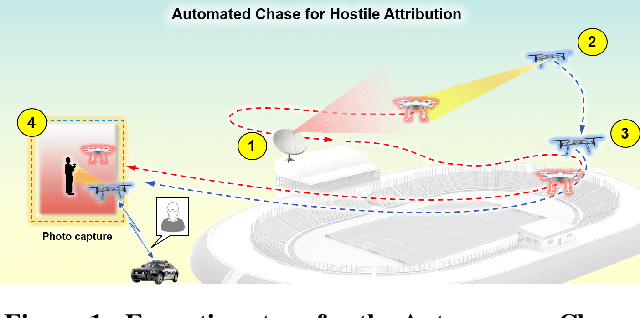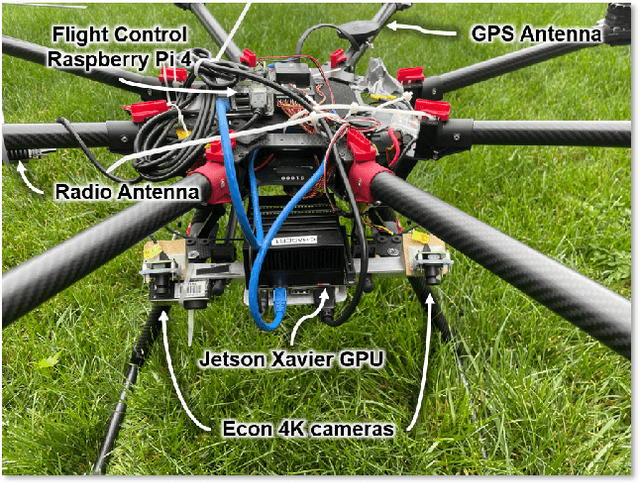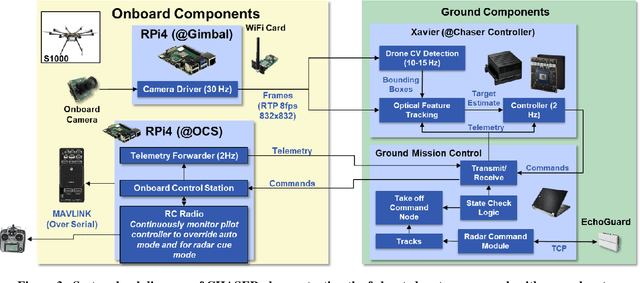Virginia Goodwin
Developing Modular Autonomous Capabilities for sUAS Operations
Nov 01, 2022



Abstract:Small teams in the field can benefit from the capabilities provided by small Uncrewed Aerial Systems (sUAS) for missions such as reconnaissance, hostile attribution, remote emplacement, and search and rescue. The mobility, communications, and flexible payload capacity of sUAS can offer teams new levels of situational awareness and enable more highly coordinated missions than previously possible. However, piloting such aircraft for specific missions draws personnel away from other mission-critical tasks, increasing the load on remaining personnel while also increasing complexity of operations. For wider adoption and use of sUAS for security and humanitarian missions, safe and robust autonomy must be employed to reduce this burden on small teams. In this paper, we present the development of the Collaborative-UAS for Hostile Attribution, Surveillance, Emplacement, and Reconnaissance (CHASER) testbed, for rapidly prototyping capabilities that will reduce strain on small teams through sensor-guided autonomous control. We attempt to address autonomy needs unfilled by commercial sUAS platforms by creating and testing a series of composable modules that can be configured to support multiple missions. Methods implemented and presented here include radar track correlation, on-board computer vision target detection, target position estimation, closed-loop relative position control, and efficient search of a 3D volume for target acquisition. We configure and test a series of these modules in an example mission, executing a fully autonomous chase of an intruding sUAS in live flight, and demonstrating the success of the modularized autonomy approach. We present performance results from simulation or live flight tests for each module. Lastly, we describe the software architecture that we have developed for flexible controls and comment on how the capabilities presented may enable additional missions.
 Add to Chrome
Add to Chrome Add to Firefox
Add to Firefox Add to Edge
Add to Edge